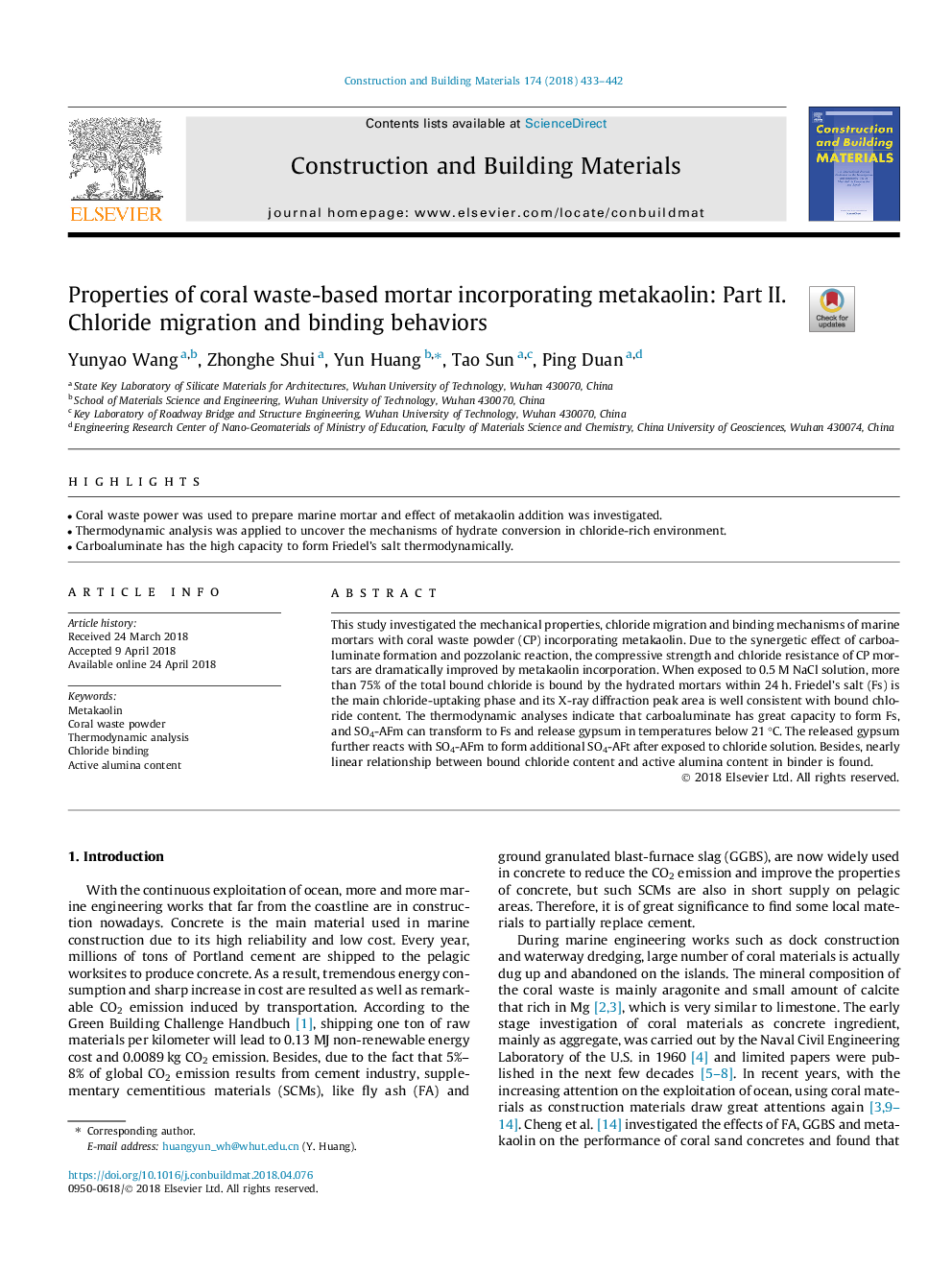| Article ID | Journal | Published Year | Pages | File Type |
|---|---|---|---|---|
| 6713512 | Construction and Building Materials | 2018 | 10 Pages |
Abstract
This study investigated the mechanical properties, chloride migration and binding mechanisms of marine mortars with coral waste powder (CP) incorporating metakaolin. Due to the synergetic effect of carboaluminate formation and pozzolanic reaction, the compressive strength and chloride resistance of CP mortars are dramatically improved by metakaolin incorporation. When exposed to 0.5â¯M NaCl solution, more than 75% of the total bound chloride is bound by the hydrated mortars within 24â¯h. Friedel's salt (Fs) is the main chloride-uptaking phase and its X-ray diffraction peak area is well consistent with bound chloride content. The thermodynamic analyses indicate that carboaluminate has great capacity to form Fs, and SO4-AFm can transform to Fs and release gypsum in temperatures below 21â¯Â°C. The released gypsum further reacts with SO4-AFm to form additional SO4-AFt after exposed to chloride solution. Besides, nearly linear relationship between bound chloride content and active alumina content in binder is found.
Related Topics
Physical Sciences and Engineering
Engineering
Civil and Structural Engineering
Authors
Yunyao Wang, Zhonghe Shui, Yun Huang, Tao Sun, Ping Duan,
